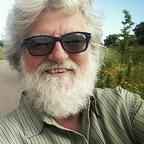Tell It To The Bees
It was during a recent course on death and dying that I learned of the 19th-century custom of “telling the bees” when a major event like death had occurred, a custom popularized by the Quaker poet John Greenleaf Whittier’s 1858 poem “Telling The Bees”. In it, the speaker returns to his lover’s home after a year’s absence to find the servant girl draping the hives in black and singing a mournful tune. He becomes painfully aware that “she was telling the bees of one / Gone on the journey we all must go!”
Whittier credited the custom of “telling the bees” to New England folklore but admitted to its likely “Old World” origin. Colleen English, in her article “Telling the Bees” (JSTOR Daily, 5 September 2018), tells us that in Celtic mythology, “the presence of a bee after a death signified the soul leaving the body”. The custom of telling the bees of a death in the family or other significant event was certainly popular in England, in the Midlands in particular. It was thought that the bees linked the natural world with the afterlife, thus ensuring your news reached the spiritual realm.
The reason the phrase “telling the bees” resonated with me was because it brought back to mind a memory from my childhood. My Nana, who was born near Birmingham, England, used to use the phrase whenever I was anxious or upset about something. “Go tell it to the bees,” she’d say, probably feeling it would be good for me to talk out my worries outside in Nature. I’d go out into her garden, look around until I saw a bee, and share my concerns. I can’t recall now, sixty years later, whether it helped or not but I Iike to think it did.
And that got me thinking and remembering. I recalled how during a difficult period in my life when I was convalescing in a clinic in the south of England, how I would spend time in the gardens talking to the flowers and the bees. (I also recall that nurse would follow me at a discrete distance and take notes.) Far from feeling as if I was crazy, I actually felt the most grounded with Nature I’d ever felt since childhood. It felt good to talk with my fellow-creatures and I credit them with helping with my recovery.
Which brings me to the point of this essay: do you talk to the bees when you’re feeling frustrated, worried, or upset? Perhaps you don’t literally talk to the bees but who are their equivalent? For me, if bees are not available, I talk to the trees. They are great listeners. Very non-judgemental.
We all need someone to talk to when we’re upset or anxious. Nature is a great ally — birds, bees, trees, squirrels, flowers, even clouds — there are so many in Nature awaiting you. Seek them out and share your troubles. You’ll feel better for it.
So next time, you’re upset, worried, or grieving a loss — tell it to the bees.
